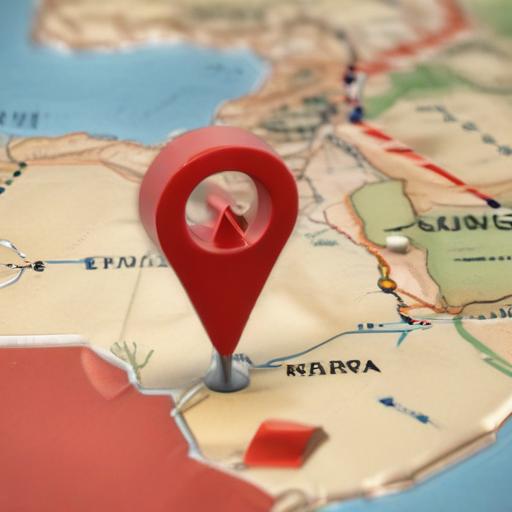Migration in Morocco: Africans moving in, staying, and the policy response
In recent weeks, social networks and some media have been consumed by discussions, at times bordering on contradiction, about the influx of African migrants into Moroccan cities. Many view Morocco as a gateway to Europe, while others have chosen Morocco as a permanent home. Across both lines of thinking, poverty, unemployment and the broader economic, political, and social instability in migrants’ home countries have pushed them to leave. As the Moroccan saying goes, “The cat never leaves the house where a wedding is taking place.” The author adds that if those in power had taken the grain and left at least the straw, migrants might have survived on straw and still had a taste of butter, underscoring a critique of perceived unequal treatment.
The author’s perspective is not meant to attack migrants on grounds of race or ethnicity. It aims to raise a thorny question that requires a global strategy and vision from Moroccan leaders regarding migration and its various challenges.
From migration to settlement
Despite concerns and challenges—security, social and economic—posed by African migration to Morocco, which present a real test for authorities in terms of managing the flow and delivering basic services to migrants, the reasons some groups choose to settle in Morocco vary.
For many migrants, staying in Morocco is a necessity after failed attempts to move to the other side or because traffickers’ often steep fees are out of reach. Others—students or skilled workers—have clear reasons to stay and to settle.
The cultural and social similarities with several African countries of origin help migrants adapt and reduce feelings of exclusion. The job market also offers opportunities for skilled migrants, enabling many to find their place.
Some also believe university studies in Morocco are less complex than in other African countries (for example, Senegal), facilitating smooth integration during the years of study and beyond.
A welcoming environment for migration in Morocco
Today, Morocco provides a welcoming setting for African migrants, allowing many to integrate quickly into various Moroccan cities. Some have completed their studies and chosen to stay on as employees or to start their own businesses, particularly in major urban centers (like Casablanca).
Yet assessing the contribution of African migrants to the Moroccan economy remains difficult due to a lack of precise statistics.
Many still regard Morocco as a transit point or a destination primarily for education. Private and public high schools, as well as the country’s universities, have offered strong opportunities to African students, leading many to prefer continuing their studies in the Kingdom rather than in Europe.
Toward an immigration strategy
Many African migrants view Moroccan society as open and multicultural. Although there are differences between younger and older generations of Moroccans, today’s youth are generally more tolerant of migrants, with some minority fringes showing hostility or conflict.
In response, Morocco is developing strategies to address migration by providing support to migrants and improving their living conditions, while strengthening international partnerships to combat human trafficking and irregular migration. Morocco is also seeking to reinforce regional and international cooperation to achieve sustainable development.
Summary of the outlook
– Morocco is navigating a complex influx of African migrants, with drivers ranging from push factors in migrants’ home countries to Morocco’s appeal as a gateway to Europe or a potential home.
– The movement includes both transit-focused migrants and those who aim to settle, including students and skilled workers who find opportunity in Moroccan institutions and cities.
– The Moroccan public and private sectors provide educational and economic opportunities that attract and integrate migrants, though the lack of robust statistics makes it hard to quantify overall impact.
– Policy responses focus on humanitarian and social support, anti-trafficking efforts, and regional cooperation to promote sustainable development and a more inclusive society.
Additional value and context
– Positive note: Morocco’s stated openness and emphasis on education and entrepreneurship among migrants can be leveraged to turn migration into a driver of development, innovation, and cultural exchange.
– Policy opportunities: Strengthening data collection on migrant flows and outcomes; expanding recognition of qualifications; funding language and integration programs; creating formal pathways to work and entrepreneurship; increasing protection for vulnerable migrants; and expanding regional cooperation to address root causes and trafficking.
– Community impact: Improving social cohesion initiatives, youth engagement, and intercultural dialogue can reduce tensions and reinforce a shared sense of belonging in Moroccan cities.
Short takeaway
Morocco faces the dual challenge and opportunity of migration: managing the needs and rights of migrants while leveraging their presence for social and economic development. A balanced, data-informed, and rights-respecting approach—rooted in education, formal work pathways, and regional cooperation—offers the best path forward.
If you’d like, I can tailor this rewrite for a specific section of your site (e.g., a feature story, opinion piece, or data-driven explainer) or add pull-quote highlights and a concise sidebar with key statistics and policy notes. Summary of the article remains as above, with an emphasis on a hopeful, constructive framing for readers.
